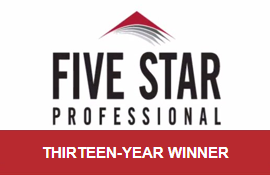 Whenever you purchase a condominium or home in a planned development like a gated community or subdivision, you will be obligated to join that community’s Homeowner’s Association (HOA).
Whenever you purchase a condominium or home in a planned development like a gated community or subdivision, you will be obligated to join that community’s Homeowner’s Association (HOA).
Your association dues go to the maintenance and upkeep of your neighborhood and common building areas. Fees are mandatory and can be made on a monthly, quarterly, or yearly basis.
Fees also pay for the care of amenities like the clubhouse, the recreational facilities, as well as services such as landscaping, general maintenance, and security.
HOA fees are not cheap
Depending on the community and type of amenities provided, HOA fees can cost homeowners anywhere from $200 to well over $1,000 per month.
Not cheap by any means, HOA fees add up quickly and become a burden if you don’t consider their impact on your buying process.
Therefore, make sure HOA fees are on your buyer checklist.
3 questions you need to ask
1. How does the neighborhood HOA govern things?
Do they hire full-time on-site managers, or rely simply on residents to volunteer for the job
2. Does the association have a reserve fund?
A reserve fund is an account dedicated to covering unexpected repairs to the property and range from between 70 to 100% of anticipated major maintenance costs.
Keep in mind that large expenditures are needed to maintain the integrity of the property, and HOA should have the funds necessary to pay for these items by accumulating reserves.
If not, you can expect HOA fees to rise and place an unexpected financial burden on you and fellow homeowners.
3. What are your HOA’s covenants, conditions, and restrictions (CC&Rs)?
CC&Rs are the rules of your neighborhood. It might be mandatory for you to mow your front lawn or, if you live in a condo, throw your trash out only at certain times of the day.Failure to comply with CC&Rs can result in steep fines. In some cases, HOAs can also put you into foreclosure as a result of non-payment of accrued fines or from repeated violations of these regulations.If the consequences of noncompliance seem harsh, these CC&Rs are meant to protect the value of every homeowner’s property within the community…and create a nice environment for all residents to enjoy.So, check out in advance what you’re in for. If you think the rules are too restrictive, then consider moving elsewhere.
Working with the real estate professionals of the GioHomes team can provide you with all the information you need to decide if the HOA in that home or condo you’re planning to buy fits your temperament and finances.
Our agents will also walk you through the CC&Rs and HOA bylaws to determine if these rules best match your lifestyle and interests. Find out more by getting in touch with us today.





